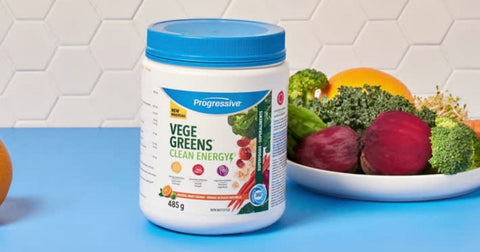Written by Chelsea DeColle, CNP
Most of us know what we need to have a well-balanced, nutrient dense, and whole food-based diet on a daily basis, but the reality is that most of us have a hard time achieving that. Even if you are eating relatively well and consuming the recommended daily amounts for all the different food types (protein, fats, and carbohydrates), chances are you may still be lacking some important nutrients and here’s why:
- When it comes to vitamin D, the majority of Canadians are deficient, with statistics showing that 32% have vitamin D levels below the minimum for healthy bones.1 Living in Canada, we are not getting adequate vitamin D intake from the sun year-round. Factors like the time of year, angle of the sun, amount of skin coverage (from clothing or sunscreen), air pollution and skin melanin content can all influence how much vitamin D our skin is exposed to and can then absorb.2 Since very few foods contain vitamin D naturally, supplementing with vitamin D, like Vitamin D3 Spray will help to prevent vitamin D deficiency.
- Our diet has changed over time and what we eat now is quite different from that of our ancestors. Our ancestors consumed a 1:1 ratio of Omega-6 to Omega-3 essential fatty acids, while currently we are eating a diet closer to 20:1 ratio between Omega-6 and Omega-3. Consuming an imbalanced ratio of essential fatty acids can lead to many health concerns including systemic inflammation.3 Omega-3 fatty acids come primarily from foods like fish/seafood, nuts, and seeds. If you aren’t eating these foods on a weekly basis, you likely could use the support of an omega-3 supplement like OmegEssential to ensure you meet your daily requirements and for the maintenance of good health.
- “An apple a day keeps the doctor away” as the saying goes, but who actually eats 6-8 servings of fruits and vegetables every day? We all know the importance of eating plenty of fruits and vegetables every day, yet it often doesn’t happen for a variety of reasons: lack of options/availability based on season and location, busy lifestyle and the rising prices of produce. A great addition to a balanced diet is a superfood powder like VegeGreens or PhytoBerry that is packed full of fruits, vegetables and antioxidants to support your body, and “keep the doctor away”.4
- Our food systems and farming practices have changed over time, soil has become nutrient depleted, and food is often harvested too early and shipped across the globe, impacting its overall nutrient value. Multivitamins help fill in the gaps of your nutrition, particularly vitamins and minerals, and give your body all the support it needs.
Try combining a few key supplements with a healthy, well balanced diet so you can keep feeling strong and healthy all year long!
References:
- Janz, T., & Pearson, C. (2011) Vitamin D blood levels of Canadians. Statistics Canada Catalogue no. 82-624-X. Accessed March 25, 2020. https://www150.statcan.gc.ca/n1/pub/82-624-x/2013001/article/11727-eng.htm
- Harvard Medical Health. 6 things you should know about vitamin D. Accessed April 16, 2021 at: https://www.health.harvard.edu/staying-healthy/6-things-you-should-know-about-vitamin-d
- Simopoulos A. P. (2016). An Increase in the Omega-6/Omega-3 Fatty Acid Ratio Increases the Risk for Obesity. Nutrients, 8(3), 128.
- Dias, J. (2012). Nutritional Quality and Health Benefits of Vegetables: A Review. Food and Nutrition Sciences, 3(10): 1354-1374.




